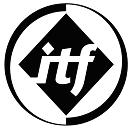Motion: Organising Informal Transport Workers
The 44th Congress of the ITF, meeting in Singapore from 14-20 October 2018:
1. Recognises the necessity for working men and women to have decent jobs to live a life of dignity for themselves and their families.
2. Aware that one of the ways of unscrupulous employers is to hire casual labour on contracts in new job openings or to replace the permanent employees, and this informality is increasing on a regular basis.
3. Notes the 43rd Congress statement that organising informal transport workers presents a “major challenge” and proposal to “implement a specific programme to train unions in methodologies for organising workers in informal transport operations”.
4. Notes the very positive achievements of the ITF’s Informal Transport Organising Project and the success of the ‘mentor union’ model of organising, and congratulates the five mentor unions who led the project: ATGWU (Uganda), NCTU (Philippines), NETWON & ITWAN (Nepal), SNTT (Colombia) and SYNATRA (Niger).
5. Notes the success of affiliates in building mass membership of informal transport workers during the project, including:
- More than 100,000 informal transport workers newly organised within ITF-affiliated unions across all unions participating in project activities.
- Launch of three new unions representing informal transport workers.
- Women leaders elected to represent informal women workers on national transport union committees in six countries.
- More than 300% increase in trade union membership of women working in the informal transport economy across six countries.
- New constitutions and/or procedures inclusive of informal workers adopted by unions in six countries.
- New organising strategies specifically directed to informal workers adopted by 15 unions in nine countries.
- New Collective Bargaining agreements covering informal transport workers in six countries.
- Major victories against police harassment of informal transport workers.
6. Supports the demands of the Informal Transport Workers’ Charter, as adopted by the 16 ITF affiliated unions participating in the project evaluation workshop held 28 July 2016 in Kampala, Uganda.
7. Notes the importance of organised informal transport workers in the success of the Our Public Transport campaign, particularly in the introduction of Bus Rapid Transit systems in Africa.
8. Notes the impact of automation and digitalisation on the growth of informal and precarious work in the transport sector, and the opportunities to learn from informal workers’ organising strategies and skills in organising workers in the ‘platform’ economy in transport who need the protection of trade unions. This support is in the larger interest of trade union survival and solidarity.
9. Notes the essential importance of union sustainability and self-reliance through the regular, efficient and accountable collection and administration of union dues.
10. Calls on the ITF to:
- Develop a long-term programme of support for union organisation among informal transport and other unorganised workers, building on the experience of the mentor unions and extending activities to include other countries and regions.
- Assist affiliates to share experiences and organise the unorganised.
- Extend the ‘Visibility of Women’ component of the informal workers’ organising programme to strengthen informal women workers’ opportunities for more skilled and secure employment in transport, informal women’s representation and leadership, and initiatives to address violence and harassment against women in the informal transport workplace.
- Strengthen cooperation between and within unions representing informal and formal economy workers, particularly those organising in the context of digitalisation and automation.
- Recognise that road and urban transport have been the focus of informal organising so far, and extend support to include informal workers from other transport sectors and their supply chains, notably in docks, railways, logistics, fisheries, and tourism.
- Support innovation in the collection, security and administration of membership dues to strengthen the sustainability of unions with mass membership among informal workers, including the use of mobile banking applications and membership administration software and training (the ‘Sustainable Unions Project’).
- Build union capacity to negotiate the transition from the informal to the formal economy as adopted in ILO Recommendation 204.
- Ensure that informal transport workers’ representatives are fully included in the ITF’s policy development and representation at a regional and global level with the key institutions concerned, including the World Bank, ILO, UNDP etc.



Leave a Reply